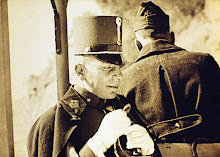
BATHYLLUS. 1. Of Alexandria, the freed-man and favourite of Maecenas, together with Pylades of Cilicia and Hylas the pupil of the latter, brought to perfection during the reign of Augustus the imitative dance or ballet called Pantomimus, which excited boundless enthusiasm among all classes at Rome, and formed one of the most ad mired public amusements until the downfall of the empire. Bathyllus excelled in comic, while Pylades was preeminent in tragic personifications.
PYLADES, the pantomime dancer in the reign of Augustus, is spoken of under bathyllus. He was banished on one occasion by Augustus, but afterwards restored to the city (Dion Cass. liv. 17 ; Suet. Aug. 45.).
Pylades - A companion to Orestes, Pylades is present for much of the play although he does not speak a word until the climax of the action. He is a representative of and the mouthpiece for Apollo. His only lines come at the moment when Orestes hesitates to kill Clytamnestra. Pylades reminds him of his duties to Apollo, saying that one should rather make enemies of all men than anger the gods. After saying these words, Pylades becomes silent once more.

Orestes was the son of Agamemnon and Clytemnestra and the brother of Electra. When his father returned from the Trojan War, he was murdered by Clytemnestra and her lover, Aegisthus. Orestes, who was quite young at the time, went into exile and swore to get revenge. After he reached adulthood, he returned home secretly and, plotting with his sister Electra, contrived the murder of both Aegisthus and Clytemnestra. As a consequence of his deed, Orestes was tormented by the Erinyes, or Furies, who followed him everywhere he went. The Erinyes only stopped hounding him when he sought judgement for his crime at the Aeropagus in Athens, and was acquitted.


